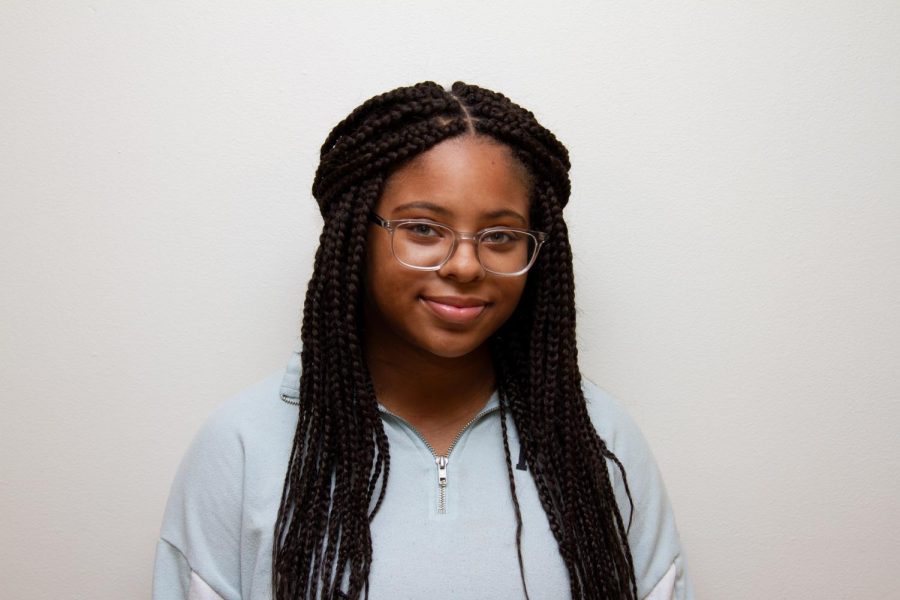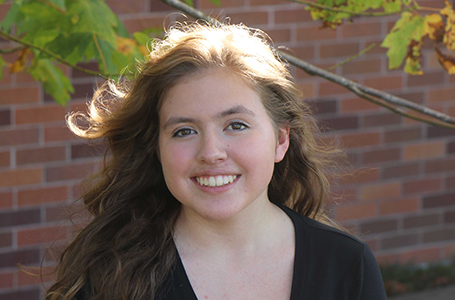La Salle Junior Christine Bynum Takes a Stand to Lower the Oregon Voting Age
Junior Christine Bynum has been taking steps to help a bill pass in Oregon that would lower the voting age to 16. She will be speaking to lawmakers at the Oregon State Capitol in Salem next week.
March 13, 2019
Nearly fifty years ago, many argued that anyone eligible to be drafted in the Vietnam War should be allowed to vote. In July of 1971 President Richard Nixon signed the 26th Amendment that lowered the voting age to 18 years old. Now, lawmakers in Oregon have unveiled a plan to lower the voting age to 16 years old.
Several Oregon lawmakers have created a bill that will allow 16-year-olds to vote in all Oregon elections (but not federal elections). If this bill were to pass, it would make Oregon the first state to allow 16-year-olds to vote, opening the door for the possibility of the legal voting age to change nationwide.
Even though the 26th Amendment says, “The right of citizens of the United States, who are 18 years of age or older, to vote, shall not be denied or abridged by the United States or any state on account of age,” there is nothing that says individual states cannot lower their voting age for their own state elections. Therefore, this bill can legally pass without breaking the 26th Amendment.
La Salle junior Christine Bynum recently spoke to Oregon lawmakers at the announcement of this bill on Feb. 18, offering two reasons for why she feels Oregon should lower its voting age.
“If I can be tried as an adult, why can’t I vote as an adult? I pay income tax like an adult, I drive like an adult, I can be charged and sentenced as an adult,” Bynum said. “Why is something as important as voting limited to our present and not our future?”
Bynum said that it is important for 16-year-olds to be allowed to vote because they have to pay taxes on their paychecks. “We are treated like an adult in the legal system, and [yet we] still don’t get the opportunity to vote,” Bynum said. “[In history books,] we keep seeing the statement ‘no taxation without representation.’”
“When I got my first paycheck when I was 12, and I worked for my parents, [I asked my mom why] it says I got $44 but I only actually [got] $40,” Bynum said. “So I was being taxed at a young age, but I didn’t really know what it meant and I didn’t understand why.”
Bynum argued against the idea that 16-year-olds are too young or immature to vote. “16-year-olds are going to vote [for] what’s in their best interest,” she said. Bynum also says that peer pressure may play a part in getting younger people to vote, and would encourage and create a habit of voting in the future.
Bynum does agree that 16-year-olds are influenced by their parents and the media, but she asserts that “[media and parents play a part] in what our lawmakers believe, it plays a part in what everybody else believes,” Bynum said. “When we find out how things really work, we form our own opinions. Yes, we might be influenced by our parents but it’s not going to affect my decision.”
Some people involved in politics believe that this bill is an attempt to manipulate the outcome of elections. For example, Oregon Republican Senator Herman Baertschiger Jr. said, “This is nothing more than an attempt to expand the voter rolls to sway elections.”
Bynum believes that “lowering the voting age [won’t] sway elections… our generation is more independent than Republican or Democrat.”
She plans to continue taking steps to help this voting bill pass. Next month, Bynum will be heading to the Oregon State Capitol in Salem to speak with lawmakers about the importance of the bill. “[I will] speak with Senator Fagan about passing [the bill] and just spreading the word around, explaining why it should be passed,” Bynum said.
Bynum said lowering the voting age “will have a huge positive outcome on Oregon because it will encourage future voters.”
Although this is a controversial topic with many either arguing for or against, Bynum believes despite the controversy of the bill, “If you have an opinion, you should have the ability to voice it.”







Tom McLaughlin • Mar 19, 2019 at 2:49 pm
Compelling thoughts, Christine. Thank you for caring and getting involved. I respect and appreciate you. Well written story, Olivia.
Anonymous • Mar 14, 2019 at 9:05 am
While this is a well written article, I disagree with the points being made here. I do believe that because of the current division that is plaguing our country this is somewhat of a political ploy to sway the votes to one side. Many young people especially here in the state of Oregon are very progressive and through my experiences, largely misinformed on the issues. We as a society cannot allow people who take what they hear straight off an instagram page (which is often false information) to the polls. This idea was just now brought up because of all the teenagers who want to be “empowered” and many of these individuals base their beliefs off false premises which is very sad. If anything the age requirement should be higher as we need mature people who have experience in the working world to be our voters.
Sawyer Paugh • Mar 13, 2019 at 9:25 pm
I love the reporting Olivia. You addressed a controversial topic in a bipartisan way in order to report what is actually going on. Although I have my own opinion, I cannot counter your reporting because I would be countering the opinions of Bynum, not your’s, that proves that your reporting is purged of opinion, so I would like to compliment on that and say you did a perfect job!